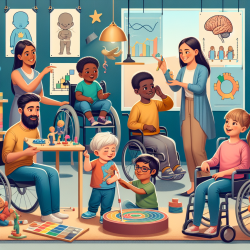Enhancing Online Therapy with Text Mining and Multilevel Modeling
At TinyEYE, we are committed to leveraging cutting-edge research to improve our online therapy services. One recent study that stands out is "Understanding Therapeutic Change Process Research Through Multilevel Modeling and Text Mining" by Smink et al. (2019). This research offers valuable insights into how text mining and multilevel models (MLMs) can be used to enhance therapeutic outcomes, especially in online settings. Let's explore how practitioners can implement these findings to improve their skills and encourage further research.
Key Insights from the Research
The study addresses two main challenges in Therapeutic Change Process Research (TCPR): deriving meaningful change processes from texts and assessing these complex, multi-layered processes. Here are the key takeaways:
- Text Mining: Text mining tools can analyze large bodies of text, such as emails between therapists and clients, to identify patterns and trends. This can help in understanding the "active ingredients" of therapy that contribute to positive outcomes.
- Multilevel Models (MLMs): MLMs are statistical models that account for the hierarchical structure of data. They can analyze change processes at multiple levels, such as individual clients and their interactions with therapists.
Implementing Text Mining and MLMs in Practice
Practitioners can leverage text mining and MLMs to enhance their therapeutic interventions. Here are some practical steps:
- Automate Text Analysis: Use text mining software like the Linguistic Inquiry and Word Count (LIWC) to automatically analyze client-therapist interactions. This can help identify key emotional and cognitive processes that are linked to positive outcomes.
- Use Multilevel Models: Apply MLMs to assess the impact of different therapeutic interventions. For example, you can analyze how specific text features, such as the use of positive or insightful words, relate to changes in client outcomes over time.
- Provide Data-Driven Feedback: Use insights from text mining and MLMs to provide personalized feedback to clients. This can help tailor interventions to individual needs and improve overall effectiveness.
Encouraging Further Research
The study by Smink et al. (2019) serves as a proof-of-concept for the potential of combining text mining and MLMs in TCPR. However, there are still open challenges that require further investigation:
- Operationalization: Identifying which text features are most relevant to TCPR constructs requires interdisciplinary collaboration between psychologists and data scientists.
- Measurement Error: Addressing measurement error is crucial for ensuring the reliability of text-based measures.
- Sample Size: Ensuring adequate sample sizes at each level of analysis is essential for the statistical power of MLMs.
By addressing these challenges, researchers can further advance the field of TCPR and improve the effectiveness of online therapy interventions.
To read the original research paper, please follow this link: Understanding Therapeutic Change Process Research Through Multilevel Modeling and Text Mining.










